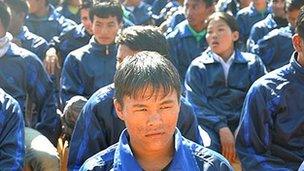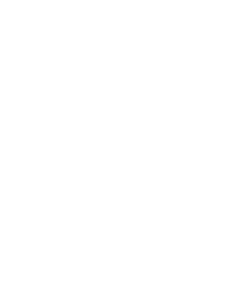Nepal parties agree final part of landmark peace deal
- Published

The future of former Maoist insurgents has been one of the biggest barriers to the peace process
Nepal's main political parties have agreed the last part of a landmark peace deal after years of wrangling.
A spokesman for the prime minister said the deal revolves around the future of about 19,000 former Maoist fighters.
About a third of them will be integrated into the security forces. The remainder will receive a pay-off.
The Maoists ended a long-running insurgency five years ago. Peace moves had stalled over the future of former rebel fighters and a new constitution.
A statement detailing the agreement was issued soon after it was announced by the four major parties of Nepal - the Maoists, the Nepali Congress, the Communist Party of Nepal (Unified Marxist Leninist) and the Madeshi People's Rights Forum (Democratic) party which represents people living in the southern plains.
It said that agreement had been reached "on issues relating the integration of former Maoist combatants into the security forces and providing support to victims of the conflict".
The statement said that 500,000 to 800,000 Nepali rupees ($6,300 to $10,190) would be given in compensation to those Maoists who do not join the security forces.
In addition:
Weapons used by former Maoist fighter will be handed in to the state
A peace and reconciliation commission will be formed within a month
Land captured or confiscated by the Maoists will be returned to original owners
Correspondents say that while the deal has cross-party support from politicians representing different areas of the country, not everyone has come out in support of it.
One influential Maoist leader, Mohan Baidya - the head of a hardline faction - has already expressed discontent.
The BBC's Jill McGivering says that the end of the civil war raised hopes in Nepal - but since then many became increasingly disillusioned with successive political stalemates and resignations.
Supporters of the deal hope that it will bring an end to one of the most difficult parts of the peace process - the future of weapons used by the Maoists during their insurgency and the future of the former insurgents themselves.

Former Maoist fighters will now be integrated into the security forces
The Maoists gave up their decade-long armed revolt in 2006 and joined a peace process. Their decade-long insurgency left 18,000 people dead and caused massive damage to the economy.
They agreed to confine their fighters to UN-monitored camps and locked up their weapons, in addition to taking part in mainstream politics and contesting elections.
But there were strong disagreements among the main parties over the future of the former rebel fighters.
In 2009, Maoist leader Prachanda resigned as prime minister after his efforts to sack the country's army chief - who he accused of hampering his efforts to integrate former Maoist fighters in the army - were blocked by the president.
But the situation improved in September 2011 with the election of Maoist Prime Minister Baburam Bhattarai.
Shortly after he was sworn in, most Maoist weapons were handed over to a multi-party committee tasked with overseeing the peace process.
Mr Bhattarai is the fifth in the five years since the peace process started. He has been described by some as the country's last hope.
Despite the breakthrough with the country main parties, correspondents say that many challenges still lie ahead.
One of the most pressing is the search to find consensus on drafting a new constitution, which is why another extension for the current Constituent Assembly may have to be agreed.